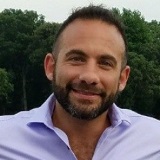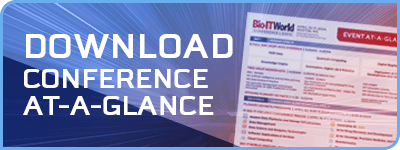2024 年會前研討會*
Bio-IT World 將於 4 月 15 日星期一上午和下午舉辦開幕前研討會。 該研討會具有教育意義和互動性,提供有關特定主題的深入資訊。 它還允許一對一的互動,使其成為討論全體會議(週二至星期三)可能未涵蓋的更多技術方面的最佳途徑。
* 需要另外報名。
2024年4月15日(一) 8:00 - 10:00 AM
W1: Generative AI 101: Demystifying for Drug Discovery Research
Generative AI 101: Demystifying for Drug Discovery Research
Parthiban Srinivasan, PhD, Professor, Data Science and Engineering, Indian Institute of Science Education and Research, Bhopal
INSTRUCTOR BIOGRAPHIES:
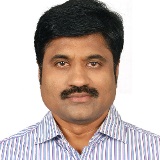 Parthiban Srinivasan, PhD, Professor, Data Science and Engineering, Indian Institute of Science Education and Research, Bhopal
Parthiban Srinivasan, PhD, Professor, Data Science and Engineering, Indian Institute of Science Education and Research, Bhopal
W2: Data Science in Practice: Embracing the Challenges, Unleashing the Possibilities
Data Science in Practice: Embracing the Challenges, Unleashing the Possibilities
Ari E. Berman, PhD, CEO, BioTeam, Inc.
Simon Twigger, PhD, Principal Consultant, BioTeam, Inc.
INSTRUCTOR BIOGRAPHIES:
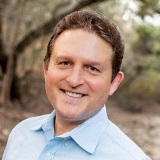 Ari E. Berman, PhD, CEO, BioTeam, Inc.
Ari E. Berman, PhD, CEO, BioTeam, Inc.
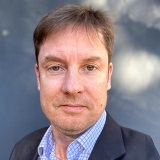 Simon Twigger, PhD, Principal Consultant, BioTeam, Inc.
Simon Twigger, PhD, Principal Consultant, BioTeam, Inc.
W3: Semantic Management Technologies and Processes: An Agile Framework to Enable Innovation
Semantic Management Technologies and Processes: An Agile Framework to Enable Innovation
Bimjhana Bishwokarma, MS, ALM, Senior Business Analyst, Takeda Pharmaceuticals
Julia Fox, PhD, Director, Takeda Data Sciences Institute
Julie Gorenstein, Director, Takeda Data Sciences Institute
Samantha Lipsky, Associate Director, Systems & Architecture, Takeda
INSTRUCTOR BIOGRAPHIES:
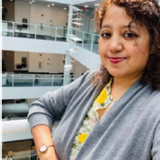 Bimjhana Bishwokarma, MS, ALM, Senior Business Analyst, Takeda Pharmaceuticals
Bimjhana Bishwokarma, MS, ALM, Senior Business Analyst, Takeda Pharmaceuticals
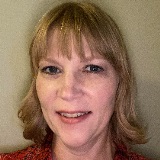 Julia Fox, PhD, Director, Takeda Data Sciences Institute
Julia Fox, PhD, Director, Takeda Data Sciences Institute
.tmb-0.jpg) Julie Gorenstein, Director, Takeda Data Sciences Institute
Julie Gorenstein, Director, Takeda Data Sciences Institute
 Samantha Lipsky, Associate Director, Systems & Architecture, Takeda
Samantha Lipsky, Associate Director, Systems & Architecture, Takeda
2024年4月15日(一) 10:30 - 12:30 PM
W4: Large Language Models and Their Practical Applications within Novartis: Best Practices and Use Cases
Large Language Models and Their Practical Applications within Novartis: Best Practices and Use Cases
Rishi R. Gupta, PhD, Associate Director, Data Science, Novartis Institutes for Biomedical Research, Inc.
Hubert Misztela, Director, Data Science, AI Researcher, Novartis Institute for Biomedical Research, Inc.
INSTRUCTOR BIOGRAPHIES:
.tmb-0.jpg) Rishi R. Gupta, PhD, Associate Director, Data Science, Novartis Institutes for Biomedical Research, Inc.
Rishi R. Gupta, PhD, Associate Director, Data Science, Novartis Institutes for Biomedical Research, Inc.
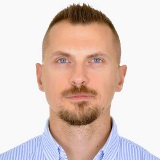 Hubert Misztela, Director, Data Science, AI Researcher, Novartis Institute for Biomedical Research, Inc.
Hubert Misztela, Director, Data Science, AI Researcher, Novartis Institute for Biomedical Research, Inc.
W5: Digitalization of Pharma R&D-Master the Marathon
Digitalization of Pharma R&D-Master the Marathon
Matthieu Croissant, Senior Solution Architect, Roche Pharma
Fabia Fricke, PhD, Pharma Research, Data & Analytics, Roche
Pedro Ivo Guimarães, PhD, Senior Scientist and Product Manager, Roche
INSTRUCTOR BIOGRAPHIES:
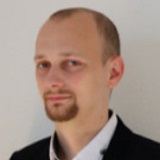 Matthieu Croissant, Senior Solution Architect, Roche Pharma
Matthieu Croissant, Senior Solution Architect, Roche Pharma
 Pedro Ivo Guimarães, PhD, Senior Scientist and Product Manager, Roche
Pedro Ivo Guimarães, PhD, Senior Scientist and Product Manager, Roche
W6: Biomedical Digital Twins
Biomedical Digital Twins
Caroline Chung, MD, MSc, FRCPC, CIP, Vice President, Chief Data Officer, Director of Data Science Development & Implementation, Institute for Data Science in Oncology, MD Anderson Cancer Center
Dan Isaacs, CTO, Digital Twin Consortium
Kerstin Kleese van Dam, Director Computational Science Initiative, Brookhaven National Laboratory
Eric Stahlberg, PhD, Director, Cancer Data Science Initiatives, Cancer Research Technology Program, Frederick National Laboratory for Cancer Research, Rockville, Maryland, USA
Mariano Vazquez, PhD, Co-Founder and CTO, ELEM Biotech, Barcelona, Spain
INSTRUCTOR BIOGRAPHIES:
 Caroline Chung, MD, MSc, FRCPC, CIP, Vice President, Chief Data Officer, Director of Data Science Development & Implementation, Institute for Data Science in Oncology, MD Anderson Cancer Center
Caroline Chung, MD, MSc, FRCPC, CIP, Vice President, Chief Data Officer, Director of Data Science Development & Implementation, Institute for Data Science in Oncology, MD Anderson Cancer Center
 Dan Isaacs, CTO, Digital Twin Consortium
Dan Isaacs, CTO, Digital Twin Consortium
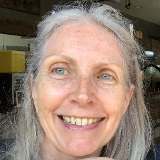 Kerstin Kleese van Dam, Director Computational Science Initiative, Brookhaven National Laboratory
Kerstin Kleese van Dam, Director Computational Science Initiative, Brookhaven National Laboratory
 Eric Stahlberg, PhD, Director, Cancer Data Science Initiatives, Cancer Research Technology Program, Frederick National Laboratory for Cancer Research, Rockville, Maryland, USA
Eric Stahlberg, PhD, Director, Cancer Data Science Initiatives, Cancer Research Technology Program, Frederick National Laboratory for Cancer Research, Rockville, Maryland, USA
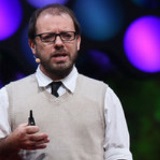 Mariano Vazquez, PhD, Co-Founder and CTO, ELEM Biotech, Barcelona, Spain
Mariano Vazquez, PhD, Co-Founder and CTO, ELEM Biotech, Barcelona, Spain
2024年4月15日(一) 2:00 - 4:00 PM
W7: Unlocking the Power of Data & AI for Drug Discovery
Unlocking the Power of Data & AI for Drug Discovery
Vincent J. Beltrani, PhD, Life Sciences Specialist, Google Cloud
W8: Instrument-Driven Discovery for the 99%: Modern Infrastructure for Research
Instrument-Driven Discovery for the 99%: Modern Infrastructure for Research
Rachana Ananthakrishnan, Executive Director, Globus, University of Chicago
Vas Vasiliadis, Chief Customer Officer, Globus, University of Chicago
INSTRUCTOR BIOGRAPHIES:
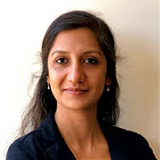 Rachana Ananthakrishnan, Executive Director, Globus, University of Chicago
Rachana Ananthakrishnan, Executive Director, Globus, University of Chicago
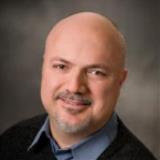 Vas Vasiliadis, Chief Customer Officer, Globus, University of Chicago
Vas Vasiliadis, Chief Customer Officer, Globus, University of Chicago
* 活動內容有可能不事先告知作更動及調整。


